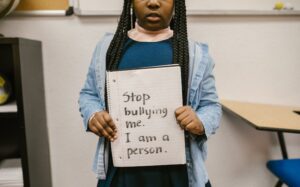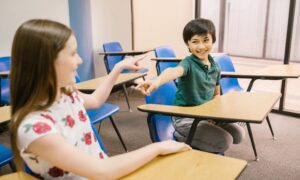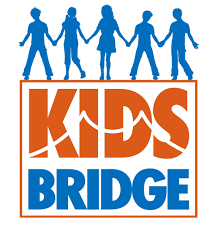 As the just verdict for George Floyd’s murder resonates and permeates our society, it provides an opportunity to reflect and aspire to improve both racial and social justice not only for adults, but for children. But how to teach children when they hear hate and see complicity modeled?
As the just verdict for George Floyd’s murder resonates and permeates our society, it provides an opportunity to reflect and aspire to improve both racial and social justice not only for adults, but for children. But how to teach children when they hear hate and see complicity modeled?
Right now, white nationalists and hate groups are coming for ‘others,’ while teaching their own children intolerance, bias and discrimination. Many people that consider themselves caring and non-hating even show biases and discriminatory behaviors in their own lives and homes. How can we break this hateful cycle? What if we took a bolder strategic approach- one that would aspire to educate all of our children i.e., Muslim, Asian, Jewish, Black, Brown, gay, trans, etc. now so that the next generation would appreciate diversity in ten or 15 years ?
Surprising to me is that nowhere in the media-amplified national conversation is there any discussion about solving these problems strategically, using proven long-term pedagogy and evidence-based programs that change hearts and minds. That strategy is an investment in childhood education focused on teaching empathy, anti-bias, diversity appreciation, starting with early childhood.
 Bullying and bias start at age three. Were we to effectively teach children about difference at an early enough age, we would over time, lessen the difficulty of having to dismantle stereotypes, bias and reduce anti-Asian, anti-Semitism, anti-Muslim, anti-Black and brown and anti-gay rhetoric. In a society so entrenched in divisive narratives and institutionalized discrimination, we suffer from a bystander and parochial mentality that turns its back to bias, discrimination and bullying – hiding in fear and shame.
Bullying and bias start at age three. Were we to effectively teach children about difference at an early enough age, we would over time, lessen the difficulty of having to dismantle stereotypes, bias and reduce anti-Asian, anti-Semitism, anti-Muslim, anti-Black and brown and anti-gay rhetoric. In a society so entrenched in divisive narratives and institutionalized discrimination, we suffer from a bystander and parochial mentality that turns its back to bias, discrimination and bullying – hiding in fear and shame.
If there was ever a time to make the case for bottom up, grass roots transformation, this is it. Conversations as adults are way too late; think sprouts, baby grass, and seedlings. Think of all of our kids.
We live in a time when empathy is not only lacking but on the decline. Kids are bullied because of the color of their skin, religion, ethnic heritage, gender orientation and more. Bullying and cyberbullying are increasing, especially for children of color, Asian Americans, gay youth, and Jewish and Muslim youth. Fueled by decreases in respect, kindness, compassion and implicit bias, it’s clear we need to do more!
A word of caution for discussions with your children and students: society has taken a radical paradigm shift and we need to make sure our programs and activities are developmentally appropriate for our kids. Although we can start having conversations with preschools and older, please work with your teachers or other educational experts who understand what are appropriate conversations matched to youth’s maturity. We all need to process slowly; just saying we need to get this right and don’t want to overwhelm our kids or make them feel guilt or shame.
 A good place to start is identity. Explore in an engaging welcome manner, that each child is unique and needs to learn to be proud of their religion, customs, ethnic heritage, gender expression, strengths, and their families. By the way, youth who are proud of their heritage make for the best Upstanders- those that ‘stand up and speak out’ when challenged with injustice.
A good place to start is identity. Explore in an engaging welcome manner, that each child is unique and needs to learn to be proud of their religion, customs, ethnic heritage, gender expression, strengths, and their families. By the way, youth who are proud of their heritage make for the best Upstanders- those that ‘stand up and speak out’ when challenged with injustice.
Unfortunately, with the predominance of smart phones and other types of media, kids are turning inward, struggling to communicate amid increasing stress and pressure. At a time of increased narcissism, to counteract the media and teach a foundation of social-emotional skills – with empathy the most critical – parents and teachers have to be more strategic and engaging.
Parenting starts with being a good role model. First, adults need to feel emboldened to follow their instincts and take charge of the caring climate in their homes. Second, moderation in all things is encouraged ex; phones are not used during family meals, phone are turned in to adults at 10 o’clock or earlier, no TVs in bedrooms, etc. Rules are healthy for your children and for you.
Empathy may be not be a cure-all, but just a little effort can transform a child into a more sensitive, caring human being. The good news is that empathy – the ability to “walk in someone else’s shoes” – can be taught. Kids with better social-emotional skills, including empathy, end up as better friends, co-workers, spouses, and parents. Families with a higher empathy quotient have a more, peaceful, loving culture at home.
 Having the privilege of educating more that 30,000 students over 18 years at the Kidsbridge Center in Ewing, I wanted to share what I learned from listening to kids, teachers, counselors, principals and parents. Three years ago, I started writing and all my wisdom got consolidated into a coaching guide for both parents and educators. I learned that empathy is a powerful strategic tool upon which adults can parent more effectively and efficiently.
Having the privilege of educating more that 30,000 students over 18 years at the Kidsbridge Center in Ewing, I wanted to share what I learned from listening to kids, teachers, counselors, principals and parents. Three years ago, I started writing and all my wisdom got consolidated into a coaching guide for both parents and educators. I learned that empathy is a powerful strategic tool upon which adults can parent more effectively and efficiently.
My new book, Empathy Advantage: Coaching Children to be Kind, Respectful and Successful, energizes adults to teach empathy to kids of every age, from infant through high school. It emphasizes the importance of starting early, being good role models, spending quality face-to-face time together, and more. It helps parents and educators see the causes of bullying and teach children to stand up not only for themselves– but for others. And it explores other topics including the value of pets inculcating empathy, active listening, and self-empathy – being as forgiving and kind to yourself as you would to a friend.
Look for resources online – websites, videos, etc. that can coach you as parents and teachers to help children and students develop social skills that will equip them to better navigate the world with self-compassion and empathetic concern. Some strong websites that could help direct you include learningforjustice.org, centerforparentingeducation.org and fredrogerscenter.org. Another good place to start is the Anti-bias, Anti-racist tab on the Kidsbridge Tolerance Center’s website. Consider suggesting to your school’s counselor, principal or teacher the advantage of Kidsbridge programs designed to strengthen children’s self-compassion, empathy for others and empathic action. Kidsbridge is so committed to our children’s future that we start educating preschoolers. It is never too early to get started.
To actually move society forward in the years and decades ahead, we must ensure that our children are more carefully and actively taught empathy, anti-bias, anti-racism and empowerment to advocate i.e., become Upstanders. To help youth understand bias, inequities, and discrimination, we need to paradigm shift to teach all of our children at younger ages and more consistently.
Let’s ask ourselves: What do we want for our children and what are we going to do about it?

Lynne Azarchi is Executive Director of the Kidsbridge’s Tolerance Center — a.k.a. learning lab in NJ. Kidsbridge has educated more than 30,000 youth and teachers in bullying prevention, anti-bias, diversity appreciation and social-emotional skills. Kidsbridge programs are currently remote– kidsbridgecenter.org. Azarchi is the author of The Empathy Advantage: Coaching Children to be Kind, Respectful and Successful (published by Rowman & Littlefield) empathyadvantagebook.com.
